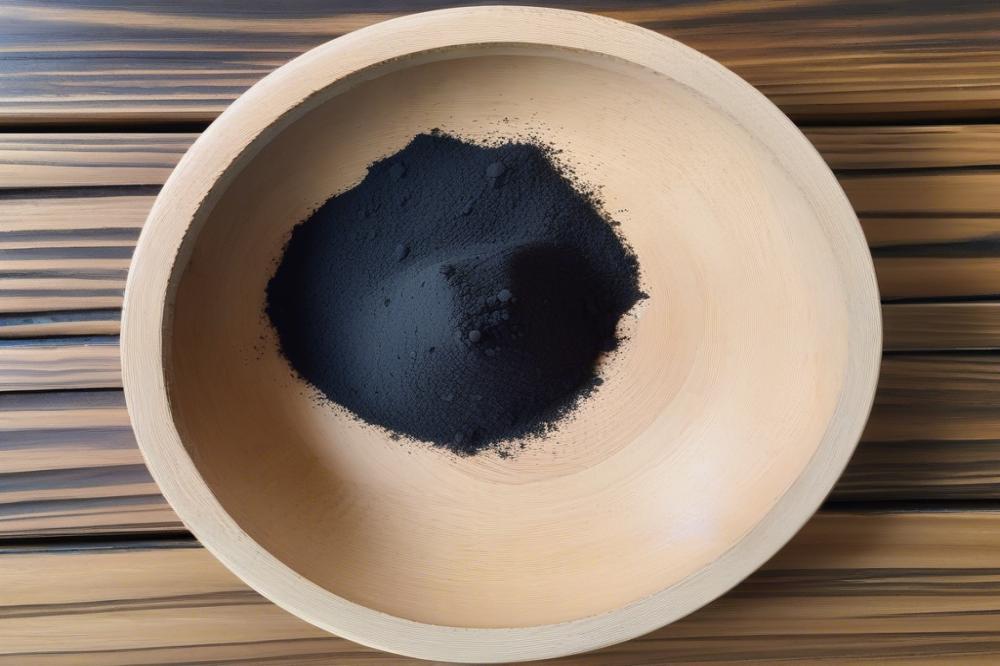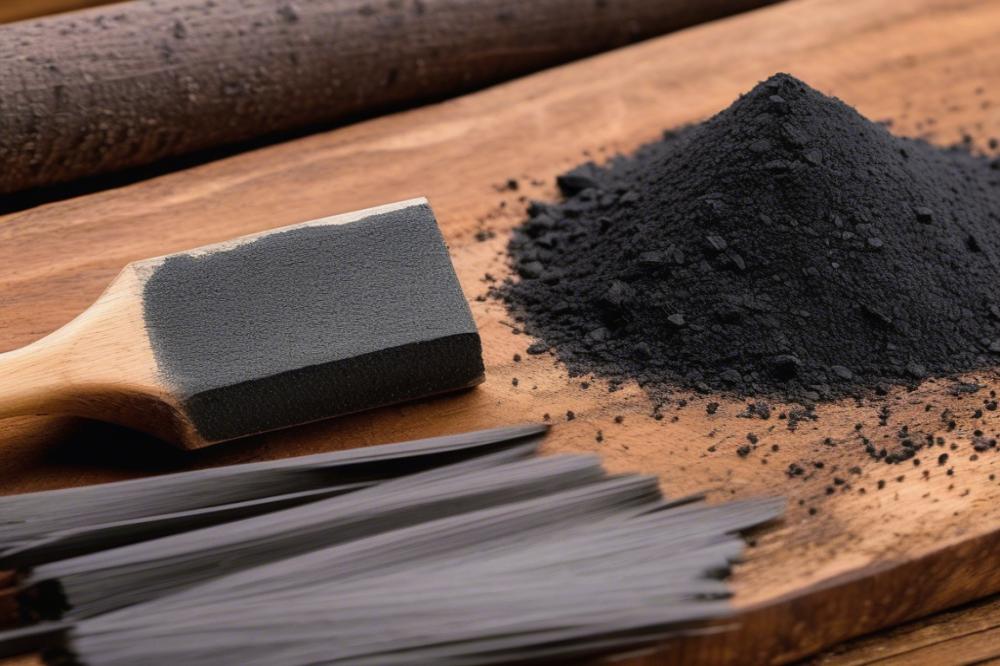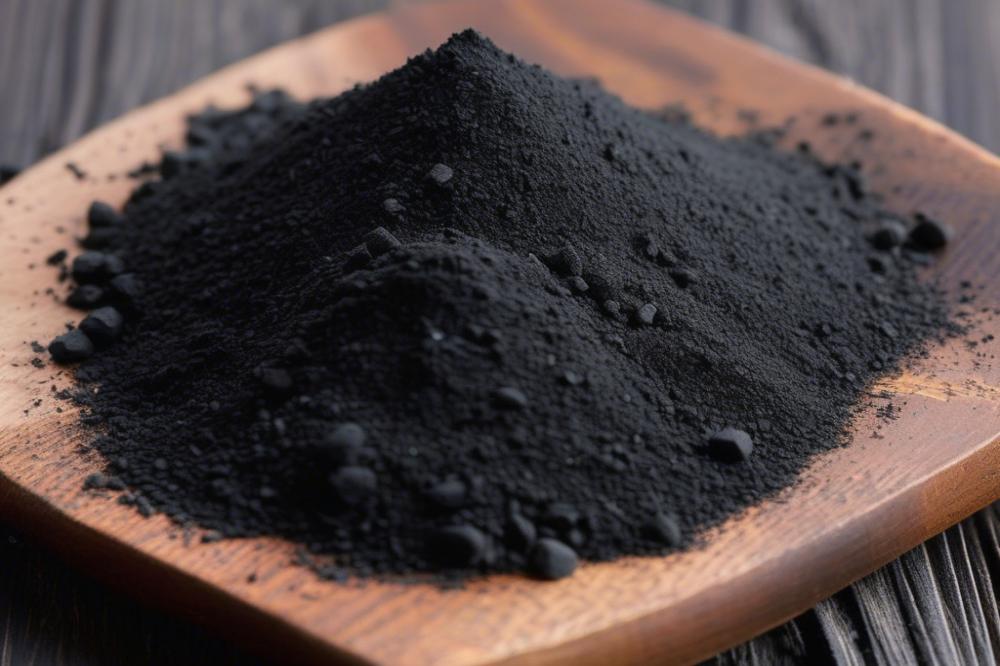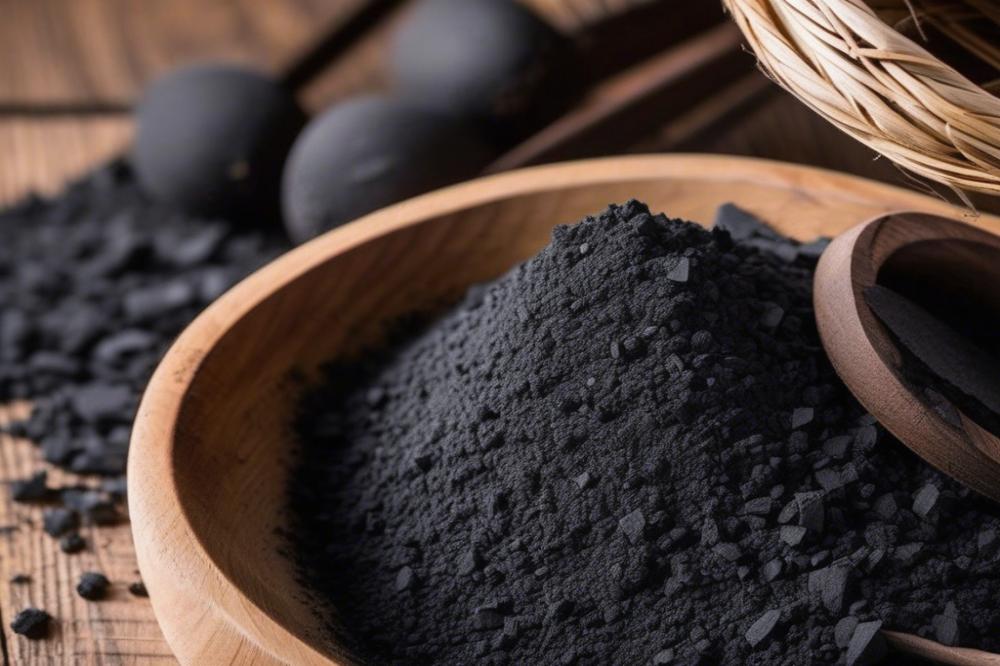The Role of charcoal ash in organic pest control
organic pesticides play a crucial role in today’s gardening and farming practices. These pesticide alternatives help maintain healthy crops without harming the environment. People are increasingly turning to natural remedies to protect their plants from pests. Chemical pesticides can do more harm than good for both crops and soil, causing pollution and health risks. Consumers want safe options for their gardens, and organic solutions offer just that.
charcoal ash emerges as an interesting natural remedy for pest control. Derived from burned wood, it serves multiple purposes in the garden. This byproduct can act as an insect repellent against harmful bugs. It helps deter pest infestations while remaining safe for beneficial insects and the surrounding ecosystem. Furthermore, it provides nutrient enrichment for the soil, enhancing overall plant health.
The purpose of this article is to explore the role of charcoal ash in organic pest management. We will cover how this material contributes to garden protection and sustainable agriculture practices. Insights into its benefits as an ash fertilizer will also be shared. Understanding its various uses will help gardeners make informed choices about their pest control strategies. By embracing eco-friendly practices, you can nurture your garden while keeping pests at bay.
What is Charcoal Ash?


Definition and Production of Charcoal Ash
Charcoal ash is the residue left after charcoal is burned. It’s created during the conversion of organic material, like wood, into charcoal. This process often involves pyrolysis, which means heating wood in low oxygen. The result is a lightweight, powdery substance packed with potential. Many backyard gardeners and sustainable farmers have rediscovered this natural wonder. When used effectively, it serves as an eco-friendly alternative to traditional pesticides.
Characteristics of Charcoal Ash
This substance is rich in carbon, making it an excellent soil additive. It can improve plant health by enhancing soil structure and moisture retention. Many people appreciate how it acts as a nutrient enrichment tool. When applied to gardens, it can also repel insects. Its fibrous nature allows it to retain nutrients longer than regular fertilizers. This means that plants can access vital elements as they grow, making it a smart choice for sustainable agriculture.
Differences Between Charcoal Ash and Regular Ash
Regular ash comes from burning wood or other organic matter and typically lacks the rich carbon content found in charcoal ash. The latter often provides greater benefits in the garden. In contrast, regular ash might contribute to soil alkalinity, which can be a problem for some plants. Charcoal ash, however, is neutral and won’t alterpH levels. Using it can create a safer environment for beneficial organisms in the soil. For those seeking natural remedies, it stands out as a versatile option over conventional farming methods. It’s effective for garden protection without harming the ecosystem, promising a bright future for eco-friendly practices.
Charcoal Ash as a pesticide alternative


Using charcoal ash in your garden can be a smart choice. This ash serves as a compelling pesticide alternative. Many gardeners have discovered its potential as a natural remedy for pesky insects. Its non-toxic nature makes it an appealing option for those seeking eco-friendly practices.
Benefits of Using Charcoal Ash in Pest Control
This natural substance brings a host of benefits. First and foremost, it acts as a soil additive, enhancing soil texture and drainage. When mixed into the ground, it doesn’t just repel insects; it also promotes nutrient enrichment. Healthy plants are less vulnerable to attackers. This means that overall plant health sees improvement too.
How Charcoal Ash Acts as an Insect Repellent
Charcoal ash works wonders as an insect repellent. Tiny particles can deter many common pests. Ants, slugs, and even some beetles tend to avoid areas treated with ash. The dust clings to insects, making it hard for them to move or breathe. Such a strategy can lead to fewer bugs munching on your precious vegetables and flowers.
Case Studies or Examples of Successful Use in Gardens
Many gardeners have shared success stories. One reported their cucumbers thrived after applying ash around their plants. They noticed a significant drop in the number of cucumber beetles. Another individual shared how a mix of charcoal ash and water created a spray. This spray protected cabbage crops from hungry caterpillars. Both examples highlight the effectiveness of simple, sustainable methods.
In summary, charcoal ash stands out as a valuable tool in garden protection. It embodies the principles of sustainable agriculture while keeping pests at bay. By embracing this natural solution, gardeners contribute to a healthier ecosystem.
Charcoal Ash as a Soil Additive


Using charcoal ash in the garden can significantly enhance soil health. This natural soil additive improves aeration, leading to better root development. Gardeners often seek sustainable agriculture solutions, and this material fits right in. Its lightweight nature helps keep the soil fluffy and well-drained.
When it comes to nutrient enrichment, this substance really shines. It is rich in minerals like potassium, calcium, and magnesium. By adding this ash fertilizer, you provide essential nutrients that plants crave. It helps create a balanced ecosystem, boosting the overall fertility of the soil. Healthy soil means healthy plants!
Plant health thrives when nutrients are readily available. Many gardeners have noted improvements in growth after incorporating this natural remedy. Increased resistance to diseases is another key benefit. Furthermore, this pesticide alternative deters harmful insects. When pests encounter it, they often steer clear of these plants, offering garden protection.
Many advocates of eco-friendly practices praise charcoal ash for its low environmental impact. Its ability to improve soil structure and nutrient availability cannot be overlooked. You can feel good about using it, knowing you are contributing to sustainable agriculture. Gardeners find that their plants not only survive but flourish with this addition.
Growth and resilience are the ultimate goals for any gardener. When plants are healthy, they can naturally fend off more diseases and pests. This eco-friendly soil amendment serves multiple purposes. It truly transforms the garden into a vibrant and flourishing space.
Charcoal Ash in Sustainable Agriculture


Using charcoal ash aligns perfectly with eco-friendly practices. This natural product acts as a pesticide alternative, promoting a healthier environment. Many gardeners appreciate it for its role as a soil additive, enhancing growth while reducing chemical use. By employing such methods, you contribute to sustainable gardening techniques that foster the balance of nature.
As a source of nutrient enrichment, charcoal ash provides essential minerals. When mixed into the soil, it improves plant health and vitality. The small particles increase water retention, benefiting root systems during dry spells, ensuring plants thrive. Additionally, it serves as an insect repellent, helping to deter harmful pests without synthetic chemicals.
When looking for natural remedies, charcoal ash stands out. It helps in garden protection against common nuisances like slugs and snails. This simple trait makes it an invaluable resource for organic farming principles. Integrating it into your gardening routine underscores a commitment to sustainable agriculture while minimizing environmental impacts.
Applying ash fertilizer throughout your garden boosts its effectiveness. Rich in carbon, it activates beneficial microorganisms that enrich soil quality. These microorganisms create a thriving ecosystem underground, vital for strong plant development. Healthier soil means more robust plants, and that attracts pollinators, enhancing the entire garden experience.
Application Methods for Charcoal Ash
Best Practices for Applying Charcoal Ash in Gardens
Begin by selecting the right areas in your garden. Focus on spots where pests frequently appear. Lightly sprinkle the ash around the base of plants to create a barrier. This will help in warding off insects effectively. Incorporate it into the soil to enhance its quality. Mixing it with compost can boost nutrient enrichment as well. Don’t forget to apply it during dry conditions, as moisture can wash it away. Regular checks on your plants can help you adjust application based on pest activity.
Dosage and Frequency Recommendations
A thin layer of ash works best. Applying about one cup per five square feet is a good starting point. Observe how plants react after application. You can increase the amount if necessary, but do this gradually. For frequency, consider reapplying every three to four weeks. Listen to your garden. If you notice a decline in pest issues, you might reduce applications. Alternatively, areas with heavy rainfall may need more frequent treatment.
Safety Considerations and Environmental Impacts
Handling the ash requires some precautions. Always wear gloves to protect your skin. Breathing in fine particles can be harmful, so consider a mask. Fortunately, using this product is generally safe for both plants and pets. Because it’s a natural remedy, the environmental impacts are minimal. Combining it with other eco-friendly practices supports sustainable agriculture. Much like any natural pesticide alternative, moderation is key. This will promote overall plant health and keep your garden thriving.
Final Thoughts on Charcoal Ash in organic pest control
Charcoal ash offers a range of benefits for those seeking organic solutions to pest problems. It acts as a natural deterrent against various insects while also enriching the soil. By using this versatile material, gardeners can reduce their reliance on chemical pesticides and embrace a more eco-friendly approach. This pesticide alternative not only protects plants but also contributes to healthier soil. Its role as a soil additive can enhance nutrient levels and promote better plant growth.
Embracing charcoal ash in your gardening routine is a smart way to incorporate natural remedies. Many organic gardeners have reported success in using it for pest management, and you could be next. It’s a simple and effective method that adds value to your gardening practices. Your plants deserve attention, and this natural solution provides just that. Consider adding it to your toolbox for keeping bugs at bay.
Ultimately, the importance of sustainable gardening methods cannot be understated. When we choose environmentally friendly ways to manage pests, we support the health of our ecosystems. Let’s commit to using innovative techniques like this. Rely on nature to help safeguard your garden while nurturing its growth. Adopting charcoal ash into your gardening practices is a step toward a more sustainable future.



